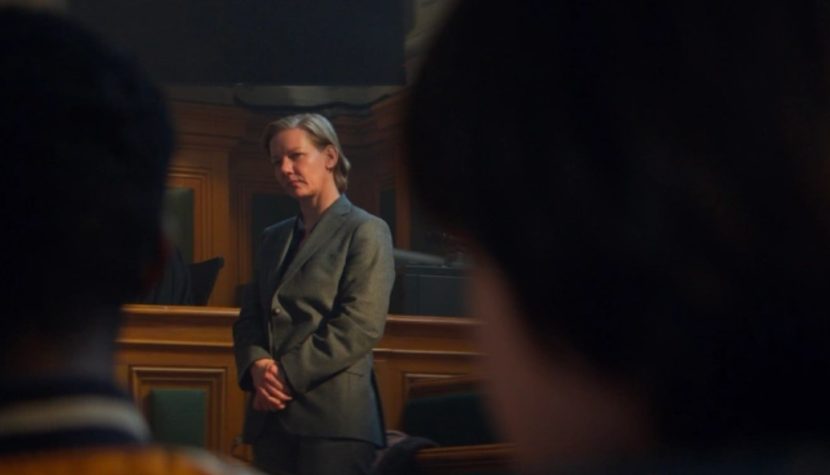ANATOMY OF A FALL. No Man’s Land [REVIEW]

May it be an unfortunate accident. Although circumstances force the services to take a closer look at the case. Samuel, Sandra’s husband, is found dead on the front porch by their son Daniel. At first glance, it can be assumed that the man fell out of the attic window. As he fell, he hit his head on the edge and bled out quickly. Violent death. Doubts may be raised by the wound after the impact, suggesting that it could have been the result of a blow from some sharp tool. When the quarrels and quarrels between Samuel (Samuel Theis) and Sandra (the powerful Sandra Hüller, who takes over the entire film for herself) begin to come to light, the case will become a crime story. Secrets and understatements will become fuel for rhetorical duels between the prosecutor and Sandra and her lawyer during the trial. Believe me, the fight for the truth is rarely so compelling in cinema.
The director and screenwriter, Justine Triet, breaks Anatomy of a Fall into several layers and reveals the next depths in parts. On one level, of course, they carry concrete evidence, but on the next, they become a diagnosis of a marriage consumed by grief and frustration. In this relationship, it was never rosy and smaller crises were interspersed with larger ones. Their acquaintance is certainly based on artistic ambitions. Samuel had to settle for a scientific career and lectures in London or Paris, but he may have been consumed by envy at Sandra’s literary success and popularity. It was always problematic to decide where to live and how to talk to each other. He is French, she is German. English seems like a safe, neutral haven. All barriers, always in no man’s land. The real rockfall in their relationship was the accident of Daniel (Milo Machado Graner), their eleven-year-old son, as a result of which the boy practically lost his sight. There were antidepressants, alcohol and quiet days.

All of this may or may not be relevant to a fatal accident. Defending one’s innocence and bringing the marital filth out are one and the same story for the court. However, for Sandra, two completely different stories. Both, however, carry a gigantic emotional burden. In translating both, she must be just as stubborn and just as composed. A paradox (or not) is certainly the moment when the prosecutor reaches for Sandra’s novels, steeped in autobiographical threads. Is it possible to extract even a scrap of factual evidence from literary fiction and penetrate the mind of a suspect? Triet invites you for a moment to an inexhaustible discussion about “the work and the artist”. The lawyer’s punchline about Stephen King clearly indicates the position of the creators of Anatomy of a Fall. Although there is no doubt that as long as people shoot, write, paint and compose, this discussion will still be as heated.
The trial becomes a plot matrix for evoking memories and digesting grief. Justine Triet maintains the journalistic coolness of a criminal investigation and avoids flashbacks with the exception of one groundbreaking scene. The director knows that nothing holds the viewer’s attention more effectively than ignorance. Our only sources of information are rehearsed statements, police hypotheses, and the occasional confession. Anatomy of a Fall is the realm of dialogue and words. A bit of truth here, slight misrepresentations there, and an incomplete truth, elsewhere the prosecutor’s erotic display. It is, in fact, an undecidable matter, which, after all, must end with a verdict. Anatomy of a Fall is much more than an exercise in a detective story (five with a plus). It is a humanistic treatise on what brings people together and what breaks their relationships from the inside. In the finale, Sandra asks a good question, questioning the legal order and how the individual is located in relation to it. There is a gray area between conviction and innocence. Justine Triet couldn’t have left us in a better place.

